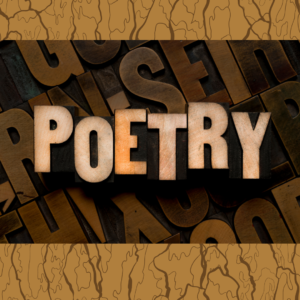 Spoken word poetry is a powerful art form that can be used to express a wide range of emotions and ideas. It is a great way to connect with others and share your story. If you’re interested in writing spoken word poetry, here are a few tips about how to write spoken word poetry.
Spoken word poetry is a powerful art form that can be used to express a wide range of emotions and ideas. It is a great way to connect with others and share your story. If you’re interested in writing spoken word poetry, here are a few tips about how to write spoken word poetry.
Start with a strong idea. What do you want to say with your poem? What is the message you want to convey? Once you have a strong idea, you can start to flesh it out.
Use vivid language. Spoken word poetry is all about creating a sensory experience for the audience. Use vivid language to paint pictures with your words. This will help your audience connect with your poem on a deeper level.
Be personal. Spoken word poetry is often most effective when it is personal. Share your own stories and experiences. This will make your poem more relatable and authentic.
Use rhythm and flow. Spoken word poetry is meant to be performed, so it’s important to pay attention to the rhythm and flow of your words. This will help your poem sound more natural and engaging.
Practice, practice, practice. The more you practice, the better you’ll become at writing and performing spoken word poetry. So get out there and start practicing!
Here are some additional tips about how to write spoken word poetry that are specific to the audience of Poetic Resurrection:
Write about diverse experiences. The audience of Poetic Resurrection is interested in hearing about diverse experiences. So if you have a story to tell, don’t be afraid to share it.
Be yourself. The audience of Poetic Resurrection wants to hear from real people. So be yourself and let your personality shine through in your poetry.
Be open to feedback. The audience of Poetic Resurrection is always willing to give feedback. So be open to hearing what they have to say about your poetry.
I hope these tips help you get started on your journey to writing spoken word poetry. Remember, the most important thing is to be yourself and to let your voice be heard.
Here are a few examples of spoken word poetry that you can check out:
- The Letter Never Delivered by Digital Poetry
- Strength by Digital Poetry
- Sarah Kay – Orange
- Melissa Lozada-Oliva – Peluda
- Prince EA – Everybody Dies, But Not Everybody Lives
These are just a few examples to get you started. There are many other great spoken word poets out there, so be sure to explore and find the ones who resonate with you.
Resources for Writing Spoken Word Poetry
Here are a few resources that can help you learn more about writing spoken word poetry:
Poetry Foundation
The Spoken Word Revolution: Slam, Hip Hop & the Poetry of a New Generation (A Poetry Speaks Experience)
Poetry Journal: A Slam Poetry Notebook for Poets, Spoken Word Slammers, & Lyrical Gurus: 120 Un-Lined Blank Pages for Inspired Creation (Songwriter Musician Series)
Take the Mic: The Art of Performance Poetry, Slam, and the Spoken Word (A Poetry Speaks Experience)
These resources can provide you with more information about the history of spoken word poetry, the different techniques used in spoken word poetry, and how to perform spoken word poetry.
Conclusion
Spoken word poetry is a powerful art form that can be used to express a wide range of emotions and ideas. If you’re interested in writing spoken word poetry, I encourage you to start today. Use the tips in this blog post and the resources I’ve provided to get you started. And most importantly, be yourself and let your voice be heard.
Check out the poetry section on Poetic Resurrection.

